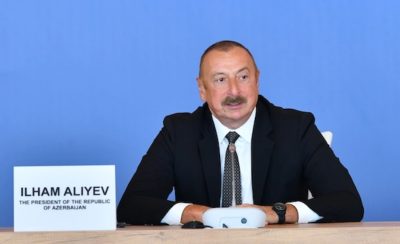By Hagop Avedikian
The tenth anniversary of the destruction of the khachkar (cross-stone) cemetery in New Julfa and the decision of the Georgians to prevent the entry into Georgia of Samvel Karapetyan, a well-known specialist on Armenian monuments, once again have made the issue of the destruction or usurpation of the treasures of Armenian monuments and spiritual culture in countries neighboring Armenia urgent (the December 18 issue of Azg contains further articles on this issue).
For many years and even decades, both a long time before Armenian independence, and continuing thereafter, Armenian intellectuals have periodically raised alarms about the systematic destruction or usurpation of the monuments of Armenian culture and civilization, especially when new evidence comes to light. In the diaspora, the only result has been a little bit of noise, pain, lamentation and finally condemnation, but no more. This primarily has been in connection with the blowing up or usurpation of monuments on the territory of the Republic of Turkey. The same thing was noticeable, but in much narrower circles of specialists in Soviet Armenia, when our cultural values became victims of vandalism in “fraternal” Azerbaijan or were subject to a treacherous state-academic policy, as in the instances of Armenian rugs, miniature illumination, literature and music. We only proclaimed, talked and listened, as we feared being categorized as nationalist, and the Azerbaijanis were experienced in doing this, with Moscow’s permission.
Strangely, however, even a domestic or Armenian internal monologue has not taken place in the case of similar activities taking place in Georgia, despite the fact that precise data about it is known to certain of our experts. The Georgians with no less consistency than our other neighbors have destroyed or assimilated our historical and cultural values and symbols, as the immortal Kersam Aharonian wrote in his extremely significant volume Medz yerazi jampun vray [On the Path of the Great Dream]. In a “friendly” manner, they took advantage of our self-contained nature, as we were obliged to restrain ourselves.
During the years after independence, the picture changed a little due with the Armenian side’s reactions and response, sometimes even at a state level, especially in connection with the state vandalism conducted in Azerbaijan. However, the Georgian acts were spared, or perhaps only were discussed through “secret diplomacy.”
In other words, both in the Soviet decades and then in the period of liberty that followed, the serious issue of the destruction or usurpation of Armenian cultural, historical and civilizational values never appeared on the political agenda of the state, nor at the necessary academic level. I believe it is because they were not aware in a full manner of the significance of this issue. These actions are a serious criminal act directed at the identity of the Armenians, Armenian statehood, and finally, the safe existence of our people.








